Online Class: Utilizing Data to Drive Instruction

no certificate
with CEU Certificate*
-
15Lessons
-
22Exams &
Assignments -
5Hours
average time -
0.5CEUs
Course Description
In an ever-evolving academic landscape, the one constant we cannot ignore is the transformative power of data. Welcome to "Utilizing Data to Drive Instruction," a course that isn't just about keeping pace with educational innovation—it's about leading the charge. This is an invitation to join a community of forward-thinking educators who are redefining teaching and learning through the strategic and ethical use of data. Let us take you on a journey where numbers and narratives meet to revolutionize classroom experiences and outcomes.
Imagine a classroom where every decision is informed by real-time insights, where teaching strategies are as dynamic and personalized as the students themselves. Picture the power of understanding each student's unique learning path, their struggles, their triumphs, and using that understanding to shape their academic journey. This course is more than just an educational tool; it's your key to unlocking an unprecedented level of student engagement and success.
From your very first step into this course, you'll be embarking on an adventure that challenges how we've traditionally viewed teaching. The magic begins by exploring how global collaboration through data can bridge educational gaps, fostering understanding and setting new benchmarks in learning around the world. You'll delve into the art and science of observational data, learning to recognize and interpret non-verbal cues, and adjusting your teaching strategies on the fly to create inclusive and participative classrooms. This isn't just about gathering data—it's about transforming data into meaningful, actionable insights.
As we venture deeper, this course will guide you through the delicate balance of using data ethically—respecting student privacy while enhancing learning experiences. With real-life narratives and case studies, you'll explore the implications and responsibilities that come with handling educational data, ensuring that your strategies always honor the students' trust.
The heart of the course lies in personalization. You'll learn how to harness data to tailor educational experiences, addressing each student's individual needs through differentiated instruction. This transformative approach not only elevates teaching but creates a learning environment that is equitable and empowering. You will become adept at using data-driven tools to provide instant feedback, which enriches the educational journey by helping you make informed, strategic adjustments to your teaching.
Consider how formative assessments can become your new compass, guiding you through the educational terrain with precision and clarity. By the end of the course, you will be an advocate for continuous improvement in your classroom, fostering a culture that emphasizes growth and student empowerment. This is not merely about keeping pace with change but about being at the forefront, championing the evolution of education.
Let's not forget the deeper, systemic impact your journey will have. You'll gain the skills to analyze data trends over time, making you a crucial player in shaping academic curricula and initiatives that boost student outcomes. And as you become well-versed in utilizing visualization tools, you will effectively communicate your findings, engaging stakeholders in collaborative educational endeavors.
By the time you reach the final lesson, you'll be fully equipped to navigate the data-driven educational landscape. Whether you're adapting teaching strategies at Lincoln High or any other institution, the insights you gain here will directly translate into improved academic performance and learning experiences.
So, why wait? Secure your place on this transformative journey. "Utilizing Data to Drive Instruction" is more than a course—it's your launchpad into the future of teaching and learning. Join us, and be a part of an inspiring movement that empowers educators to enhance their impact, one data-informed decision at a time. Here, innovation meets education, and every class becomes a tailored masterpiece. Let's make a difference together—one student, one classroom, one data point at a time.
- Completely Online
- Self-Paced
- 6 Months to Complete
- 24/7 Availability
- Start Anytime
- PC & Mac Compatible
- Android & iOS Friendly
- Accredited CEUs

Course Lessons
Lesson 1. Leveraging Data: Transforming Education in the 21st Century
Global collaboration in education is amplified by sharing data across borders, leading to unified learning outcomes and educational benchmarks. This interconnected approach fosters mutual understanding and allows for the adoption of best practices to enhance worldwide educational standards.Lesson 2. Data in Teaching: A Dual Approach
Observational data allows educators to capture dynamic classroom interactions and non-verbal cues, informing real-time strategy adjustments and engagement planning. Through structured observations, teachers gain insights beyond numbers, enhancing their ability to foster inclusive and participative learning atmospheres.Lesson 3. The Ethical Dimensions of Data in Education: Safeguarding Student Privacy
Qualitative data provides rich insights into student experiences, supplementing quantitative analysis with emotional and psychological context. Teachers' narratives and classroom observations offer valuable perspectives that guide improvements in teaching methods and student engagement.Lesson 4. The Art of Aligning Instruction With Student Data
Data-driven tools revolutionize education by offering instant feedback and insights, driving strategic teaching adjustments. Personalizing lessons based on analytics taps into student strengths and helps overcome challenges, ultimately enriching the educational journey.Lesson 5. Harnessing the Winds of Change: How Formative Assessment Enhances Student Learning
Formative assessments create a feedback-rich environment, supporting an inclusive classroom culture that emphasizes continuous improvement and student empowerment. By integrating diverse assessment methods, educators can tailor instruction to meet varying needs, ensuring equitable and effective learning experiences for all students.Lesson 6. Harnessing Data: A New Frontier in Educational Excellence
Longitudinal data tracks student performance trends over time, allowing educators to evaluate the effectiveness of curricular changes and introduce initiatives like mentoring programs to boost graduation rates. By analyzing a spectrum of data types, schools can make informed decisions that enhance educational strategies and student outcomes across years.Lesson 7. Data-Driven Insights: Tailoring Education for Diverse Needs
Ensuring student privacy and data literacy among educators are crucial components of ethically integrating data into instructional design. Educators can empower students by creating a trustful environment and ensuring data-driven practices are both informed and responsible.Lesson 8. Unlocking Personalized Education: Harnessing Data for Student Success
Data-driven approaches in education ensure personalized learning by identifying trends and patterns that can guide instructional changes. Educators employ tools like adaptive learning software and predictive analytics to create proactive learning strategies.Lesson 9. Adapting Teaching for Diversity: Strategic Insights from Data-Driven Differentiated Instruction
Differentiated instruction leverages diverse data types, such as quantitative, qualitative, and formative assessment, to tailor educational experiences to individual student needs. This approach empowers educators to create inclusive environments that enhance learning by aligning teaching strategies with students' unique abilities and preferences.Lesson 10. Transforming Education: Harnessing Data for Instructional Success
Data-driven educational cultures prioritize continuous improvement through collaborative efforts, informed decision-making, and technological support. Leadership and student engagement are crucial in building a trusting environment where data is used to enhance learning experiences.Lesson 11. Mapping Success: Navigating Education with Data Mastery
Data analysis unearths trends that drive instructional refinement, tailoring teaching strategies to address student needs proactively. By employing visualization tools, educators can clearly communicate findings, engaging stakeholders in collaborative efforts to enhance educational outcomes.Lesson 12. Data-Driven Classroom Dynamics
Survey platforms offer teachers a way to gather tailored feedback, improving the educational experience by adjusting methodologies to suit student preferences. Data from these surveys can lead to actionable changes, like incorporating visual aids or contemporary literature into coursework.Lesson 13. Protecting Student Privacy: Balancing Data Use and Ethics
Educational institutions must balance innovations in data usage with stringent privacy laws, promoting ethical data applications in student learning environments. Engaging stakeholders through transparency initiatives helps build trust and ensures compliance with regulatory frameworks like FERPA, COPPA, and GDPR.Lesson 14. Navigating the Data-Driven Landscape in Education
The proactive use of data at Lincoln High led to impressive academic performance improvements by embracing data-driven teaching methodologies. Through dedicated professional development and personalized learning plans, educators identified critical learning gaps and enhanced student learning outcomes.Lesson 15. Harnessing Information for Educational Success
Technology plays an integral role in data-driven instruction, providing tools that streamline data collection, analysis, and application for effective teaching. This ensures educators focus on impactful metrics, leading to predictive insights and proactive educational strategies.
Learning Outcomes
- Demonstrate how incorporating social-emotional learning data into educational practices can foster students' emotional well-being and resilience alongside academic achievement.
- Define how adaptive learning technologies can tailor instruction to individual student needs by analyzing real-time data and suggesting alternative resources.
- Identify the role of socio-emotional learning data in creating supportive educational environments that balance academic and emotional well-being for students.
- Recognize how adaptive learning technologies can modify content delivery based on individual student data to enhance personalized learning experiences.
- Analyze observational data to interpret student engagement and inform instructional adjustments, ensuring inclusivity and improved learning outcomes.#
- Define the complementary roles of quantitative and qualitative data in educational settings and demonstrate how educators can integrate both to enhance instructional strategies.
- Demonstrate understanding of data governance policies and ethical considerations in educational data management to ensure student privacy and trust.
- Recognize the benefits of AI-driven personalized learning pathways in improving student outcomes by analyzing educational technology advancements.
- Define instructional goals and objectives for data-driven education by analyzing student performance data to enhance teaching methodologies.
- Identify areas of student difficulty using data analytics and adjust instructional strategies to improve educational outcomes and engagement.
- Demonstrate the ability to design and implement digital tools in formative assessment to gather immediate insights into student comprehension and tailor instructional methods accordingly.
- Recognize the role of formative assessment in providing real-time feedback to adjust teaching strategies and enhance student learning.
- Recognize different types of educational data to enhance instructional strategies and meet diverse student needs.
- Demonstrate mastery of lesson content at levels of 70% or higher.
Additional Course Information

- Document Your Lifelong Learning Achievements
- Earn an Official Certificate Documenting Course Hours and CEUs
- Verify Your Certificate with a Unique Serial Number Online
- View and Share Your Certificate Online or Download/Print as PDF
- Display Your Certificate on Your Resume and Promote Your Achievements Using Social Media

Choose Your Subscription Plan
No Certificate / No CEUs
This course only
| Includes certificate | X |
| Includes CEUs | X |
| Self-paced |

|
| Instructor support |

|
| Time to complete | 6 months |
| No. of courses | 1 course |
Certificate & CEUs
This course only
| Includes certificate |

|
| Includes CEUs |

|
| Self-paced |

|
| Instructor support |

|
| Time to complete | 6 months |
| No. of courses | 1 course |
Certificates & CEUs
Includes all 600+ courses
| Includes certificate |

|
| Includes CEUs |

|
| Self-paced |

|
| Instructor support |

|
| Time to complete | 12 Months |
| No. of courses | 600+ |
Certificates & CEUs
Includes all 600+ courses
| Includes certificate |

|
| Includes CEUs |

|
| Self-paced |

|
| Instructor support |

|
| Time to complete | 24 Months |
| No. of courses | 600+ |
Related Courses
-
 4 hours
0.4 CEUs
Unlocking Resilience: Techniques for Tough Times
+ More Info
4 hours
0.4 CEUs
Unlocking Resilience: Techniques for Tough Times
+ More Info
-
 6 hours
0.6 CEUs
Public Speaking with Confidence
+ More Info
6 hours
0.6 CEUs
Public Speaking with Confidence
+ More Info
-
 5 hours
0.5 CEUs
Self-Discipline and Motivation Strategies
+ More Info
5 hours
0.5 CEUs
Self-Discipline and Motivation Strategies
+ More Info
-
 4 hours
0.4 CEUs
Career Development and Planning
+ More Info
4 hours
0.4 CEUs
Career Development and Planning
+ More Info
-
 4 hours
0.4 CEUs
Breathwork for Emotional Balance
+ More Info
4 hours
0.4 CEUs
Breathwork for Emotional Balance
+ More Info
-
 7 hours
0.7 CEUs
Introduction to Cryptocurrency and Blockchain
+ More Info
7 hours
0.7 CEUs
Introduction to Cryptocurrency and Blockchain
+ More Info
-
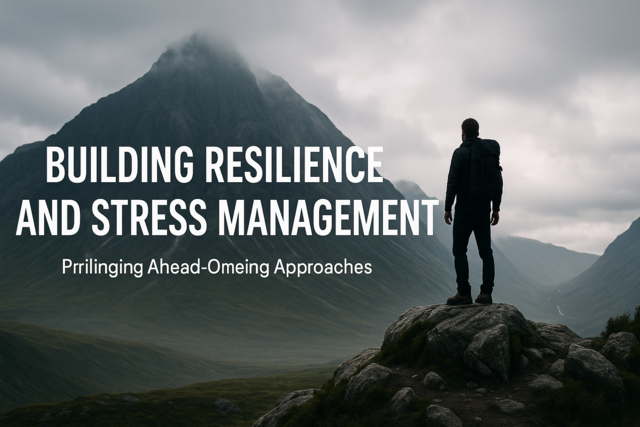 5 hours
0.5 CEUs
Building Resilience and Stress Management
+ More Info
5 hours
0.5 CEUs
Building Resilience and Stress Management
+ More Info
-
 7 hours
0.7 CEUs
Global Glam: International Perspectives on Modern Fashion
+ More Info
7 hours
0.7 CEUs
Global Glam: International Perspectives on Modern Fashion
+ More Info
-
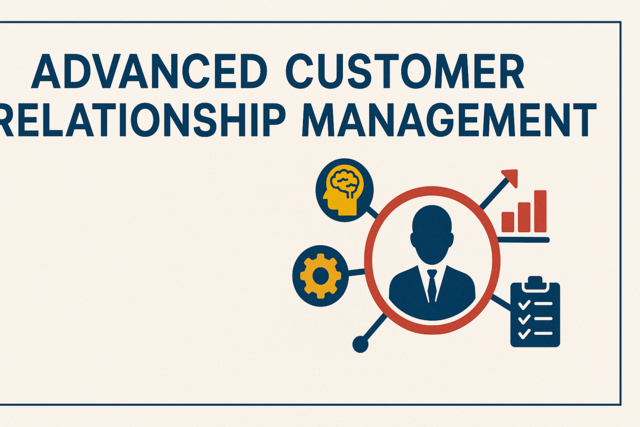 5 hours
0.5 CEUs
Advanced Customer Relationship Management
+ More Info
5 hours
0.5 CEUs
Advanced Customer Relationship Management
+ More Info
-
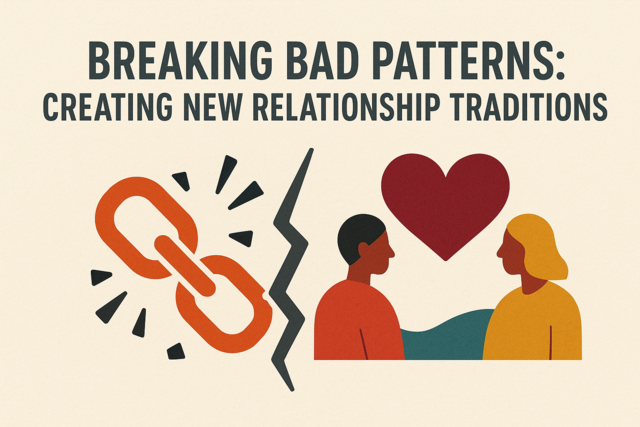 5 hours
0.5 CEUs
Breaking Bad Patterns: Creating New Relationship Traditions
+ More Info
5 hours
0.5 CEUs
Breaking Bad Patterns: Creating New Relationship Traditions
+ More Info
-
 7 hours
0.7 CEUs
The Science of Miracles: When Logic Defies Understanding
+ More Info
7 hours
0.7 CEUs
The Science of Miracles: When Logic Defies Understanding
+ More Info
-
 3 hours
0.3 CEUs
Effective Literacy Instruction in Early Education
+ More Info
3 hours
0.3 CEUs
Effective Literacy Instruction in Early Education
+ More Info
-
 4 hours
0.4 CEUs
Sustainable Style: Modern Luxury with a Conscience
+ More Info
4 hours
0.4 CEUs
Sustainable Style: Modern Luxury with a Conscience
+ More Info
-
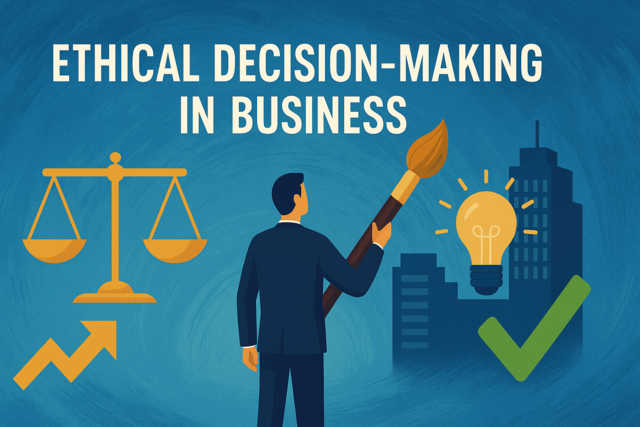 6 hours
0.6 CEUs
Ethical Decision-Making in Business
+ More Info
6 hours
0.6 CEUs
Ethical Decision-Making in Business
+ More Info
-
 6 hours
0.6 CEUs
The New Chic: Redefining Urban Elegance
+ More Info
6 hours
0.6 CEUs
The New Chic: Redefining Urban Elegance
+ More Info
-
 4 hours
0.4 CEUs
Applying Creativity in Everyday Life
+ More Info
4 hours
0.4 CEUs
Applying Creativity in Everyday Life
+ More Info
-
 5 hours
0.5 CEUs
Iconic Inspirations: Modern Fashion's Heritage and Future
+ More Info
5 hours
0.5 CEUs
Iconic Inspirations: Modern Fashion's Heritage and Future
+ More Info
-
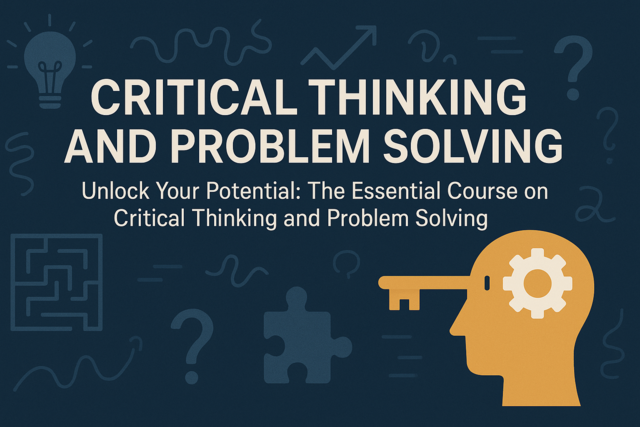 5 hours
0.5 CEUs
Critical Thinking and Problem Solving
+ More Info
5 hours
0.5 CEUs
Critical Thinking and Problem Solving
+ More Info
-
 6 hours
0.6 CEUs
Leadership Skills for Instructional Coaches
+ More Info
6 hours
0.6 CEUs
Leadership Skills for Instructional Coaches
+ More Info
-
 5 hours
0.5 CEUs
Mindful Mornings for Relationship Resilience
+ More Info
5 hours
0.5 CEUs
Mindful Mornings for Relationship Resilience
+ More Info
-
 7 hours
0.7 CEUs
Sustainable Living and Eco-Friendly Practices
+ More Info
7 hours
0.7 CEUs
Sustainable Living and Eco-Friendly Practices
+ More Info
-
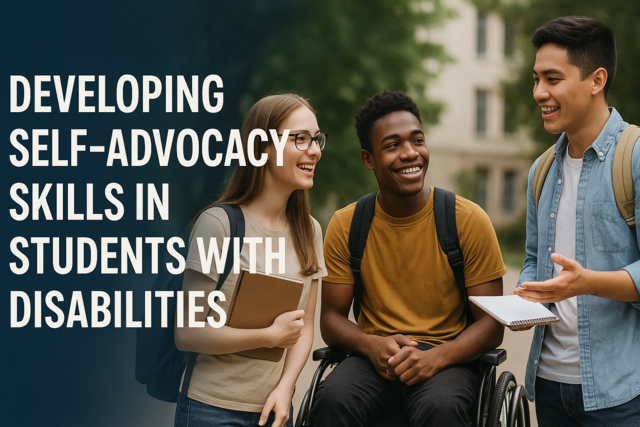 4 hours
0.4 CEUs
Developing Self-Advocacy Skills in Students with Disabilities
+ More Info
4 hours
0.4 CEUs
Developing Self-Advocacy Skills in Students with Disabilities
+ More Info
-
 5 hours
0.5 CEUs
STEAM: Integrating the Arts with STEM
+ More Info
5 hours
0.5 CEUs
STEAM: Integrating the Arts with STEM
+ More Info
-
 7 hours
0.7 CEUs
Authentic Connections: The Importance of Transparency in Relationships
+ More Info
7 hours
0.7 CEUs
Authentic Connections: The Importance of Transparency in Relationships
+ More Info
-
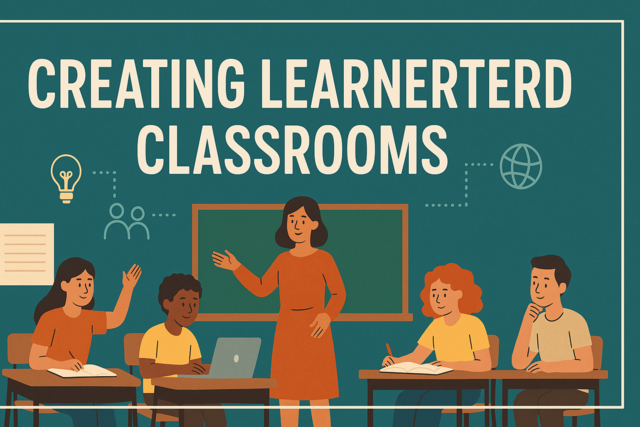 6 hours
0.6 CEUs
Creating Learner-Centered Classrooms
+ More Info
6 hours
0.6 CEUs
Creating Learner-Centered Classrooms
+ More Info
-
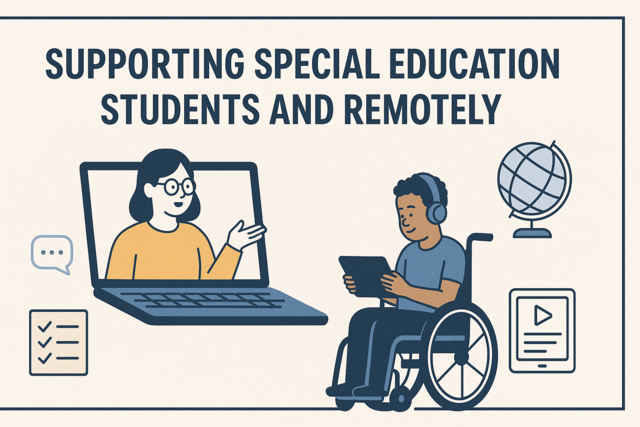 5 hours
0.5 CEUs
Supporting Special Education Students Virtually and Remotely
+ More Info
5 hours
0.5 CEUs
Supporting Special Education Students Virtually and Remotely
+ More Info
-
 7 hours
0.7 CEUs
Building a Healthy Work Environment
+ More Info
7 hours
0.7 CEUs
Building a Healthy Work Environment
+ More Info
-
 6 hours
0.6 CEUs
Mysteries of Druidic Lore and Alchemical Practices
+ More Info
6 hours
0.6 CEUs
Mysteries of Druidic Lore and Alchemical Practices
+ More Info
-
 5 hours
0.5 CEUs
Conscious Living: Mastering Mindfulness
+ More Info
5 hours
0.5 CEUs
Conscious Living: Mastering Mindfulness
+ More Info
-
 7 hours
0.7 CEUs
Basics of Entrepreneurship
+ More Info
7 hours
0.7 CEUs
Basics of Entrepreneurship
+ More Info
-
 4 hours
0.4 CEUs
Collaboration Skills for Special Education Teams
+ More Info
4 hours
0.4 CEUs
Collaboration Skills for Special Education Teams
+ More Info
-
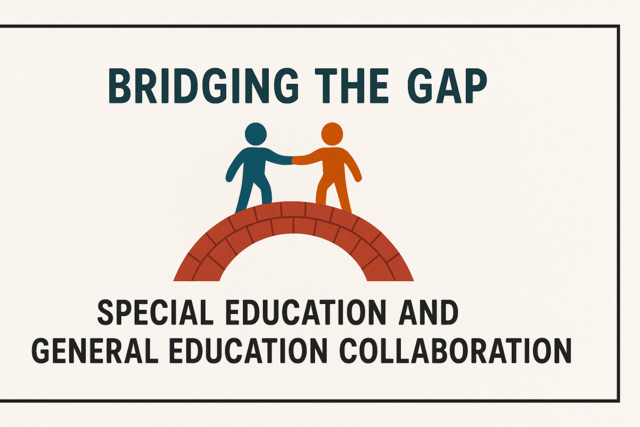 4 hours
0.4 CEUs
Bridging the Gap: Special Education and General Education Collaboration
+ More Info
4 hours
0.4 CEUs
Bridging the Gap: Special Education and General Education Collaboration
+ More Info
-
 5 hours
0.5 CEUs
The Strangeness of Human Consciousness
+ More Info
5 hours
0.5 CEUs
The Strangeness of Human Consciousness
+ More Info
-
 5 hours
0.5 CEUs
Empowering Student Voice through Leadership
+ More Info
5 hours
0.5 CEUs
Empowering Student Voice through Leadership
+ More Info
-
 3 hours
0.3 CEUs
Self-Regulation Strategies for Students with Disabilities
+ More Info
3 hours
0.3 CEUs
Self-Regulation Strategies for Students with Disabilities
+ More Info
-
 3 hours
0.3 CEUs
Positive Reinforcement Techniques for Special Educators
+ More Info
3 hours
0.3 CEUs
Positive Reinforcement Techniques for Special Educators
+ More Info
-
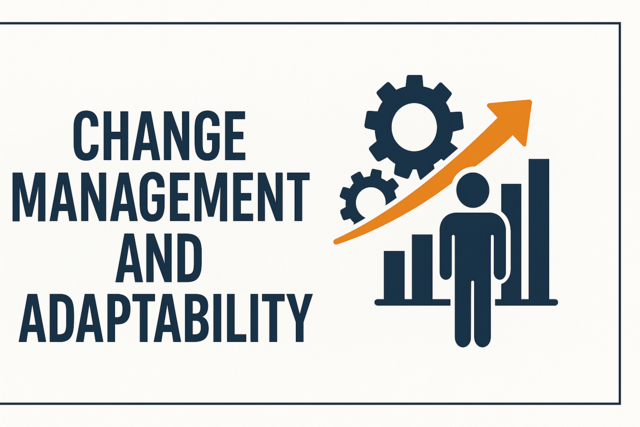 3 hours
0.3 CEUs
Change Management and Adaptability
+ More Info
3 hours
0.3 CEUs
Change Management and Adaptability
+ More Info
-
 6 hours
0.6 CEUs
Legacy Building: Creating a Family Culture to Last
+ More Info
6 hours
0.6 CEUs
Legacy Building: Creating a Family Culture to Last
+ More Info




